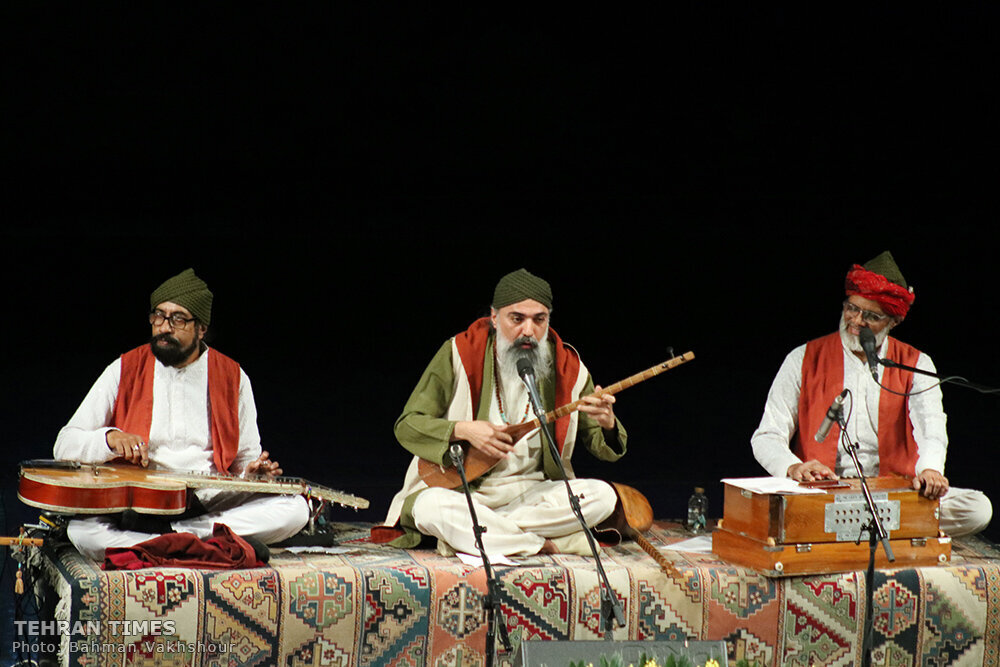Iranian, Indian musicians unite for Fajr Music Festival performance

TEHRAN – On Thursday evening, the 40th International Fajr Music Festival featured a joint performance by Iranian and Indian musicians at Tehran's Vahdat Hall, showcasing a fusion of Indo-Persian music.
The concert, titled "The Encounter," was orchestrated by Iranian musician Vahid Airian. Distinguished Indian artists Amano Manish (slide guitar), Uday Ramdas (tabla), and Pavan Shrikant Naik (vocals and harmonium) shared the stage with Iranian musicians Mojtaba Kalantari Khorrami (daf), Alireza Shahbazi (guitar), and vocalists/tanbur players Nasrin Abdolvand, Sarina Amrollahi, Zahra Gomari, Leila Yekani, Babak Ghiasvand, Alireza Rostami, and Mohammadreza Rostami.
The 40th International Fajr Music Festival is currently underway, featuring a diverse lineup of international musicians. Performances are primarily held at Tehran's Vahdat Hall.
Alongside musicians from India, the festival showcases talent from Turkey, Spain, the Netherlands, Tunisia, and Armenia. Notable international participants include Turkish cellist Jamal Aliyev and pianist Ece Dağıstan, as well as Spanish flamenco guitarists Daniel Casares and Antonio Maldonado.
A highlight of the festival is a joint performance by Afro Anatolian Tales from the Netherlands and Nushe Band from Iran. Afro Anatolian Tales includes Sjahin During and Bram Stadshouders from the Netherlands, and Bence Huszar from Hungary. Nushe Band features Iranian musicians Niusha Barimani, Rokhsareh Rostami, Niloofar Ebrahimi, Donya Fathi, Azin Malekzadeh, and Setareh Hatef.
Additionally, Levon Tevanyan from Armenia and Farah Fersi from Tunisia are also participating in the global event.
The 40th International Fajr Music Festival is organized by the Deputy of Artistic Affairs of the Ministry of Culture and Islamic Guidance, in collaboration with the Music Office of the Culture Ministry, the Iran Music Association, and the Rudaki Foundation.
It aims to showcase and honor the best works of Iranian musicians, promote the art of music, enhance the audience’s taste and listening culture, preserve national identity rooted in religious and Iranian teachings, support creative art—especially ideas and performances by the younger generation—and identify and strengthen the quality of form and content in various genres of music.
In addition to the international participants, this year, 100 Iranian bands comprising over 1,400 musicians will perform at the festival.
The festival, divided into two competitive and non-competitive sections, will continue until February 17 in Tehran.
SAB/
